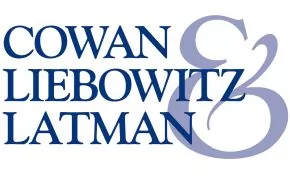On February 19, 2024, the Fifth Circuit affirmed the dismissal of a copyright infringement suit in the Western District of Texas, in which the plaintiff alleged that the band Nickelback had copied his musical composition. The plaintiff, songwriter and member of the band Snowblind, alleged that Nickelback's hit 2005 song Rockstar infringed the plaintiff's 2000 song Rock Star. The plaintiff, asserting that he had not heard Nickelback's song until 2018—“an odd contention,” according to the Fifth Circuit, given the ubiquity of the Nickelback song—brought suit in 2020. The district court dismissed the claim on summary judgment, finding that there was no genuine dispute of fact concerning factual copying. The plaintiff appealed, and the Fifth Circuit agreed.
Because plaintiff lacked direct evidence of copying, he attempted to satisfy the factual copying element of his copyright claim by means of circumstantial evidence that defendants had access to plaintiff's work and that there was “probative similarity” between the defendants' and plaintiff's works. The Fifth Circuit found that the plaintiff's theories of access—including Nickelback's record label and management group possibly attending Snowblind shows and the two bands “moving in relatively the same circles” when looking for record labels—were speculative and required “‘leaps of logic' that [were] not supported by the record.”
The plaintiff argued that the district court erred by not applying the “more discerning ordinary observer test.” The Fifth Circuit disagreed, as that standard is used in some substantial similarity analyses, which occur after a plaintiff has established factual copying.
Absent factual copying, courts require a plaintiff to prove striking similarity, a challenge plaintiff was unable to meet by alleging that certain musical hooks and lyrics were similar. The court found that the similarities between plaintiff's hook “Gonna be a rock star someday” and Nickelback's hook “Hey, hey, I wanna be a rockstar” “[were] not so great as to preclude all explanations but copying.” The court also found that plaintiff did not raise a genuine issue of fact as to whether the similarities “arise in a ‘unique or complex context.'” Instead, many of Nickelback's works and other rock songs had the same similarities.
The court similarly found lacking plaintiff's assertion that the remainder of the lyrics in defendants' work were strikingly similar to those in his work. The similar categories of lyrics, such as “making lots of money,” “connections to famous people,” and “references to sports” were common musical clichés. Moreover, the “reference to sports” category overstated the similarities between the works: plaintiff wrote about potentially buying the Dallas Cowboys football team while Nickelback's work contains a line about having a bathroom big enough in which to play baseball. In sum, the Fifth Circuit held that the works were not strikingly similar and affirmed the district court's grant of summary judgment to defendants.
The case is Johnston v. Kroeger, No. 23-5024, 2024 U.S. App. LEXIS 3806 (5th Cir. Feb. 19, 2024)
The content of this article is intended to provide a general guide to the subject matter. Specialist advice should be sought about your specific circumstances.

